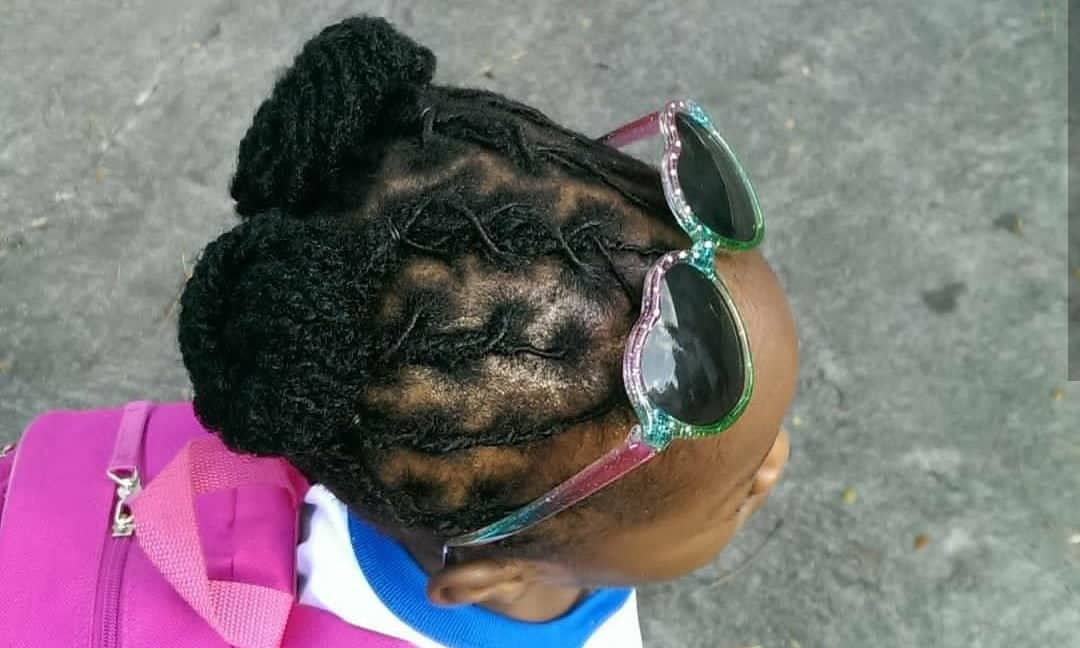
The Court of Appeal today ruled that Kensington Primary School in St Catherine had breached the constitutional rights of a female student who was denied access in 2018 after failing to trim her dreadlocks hair.
Outgoing president of the Court of Appeal, Justice Patrick Brooks, in handing down the decision, said, “It is declared that the policy of the board of management of Kensington Primary on the wearing of dreadlocks hairstyle has breached the following rights as they related to ZV rights.”
The judge noted that the child’s right to freedom of expression and the right to equitable treatment by a public authority in the exercise off any function were violated.
The landmark decision overturned in part a 2020 decision of the Supreme Court that the school’s policy did not breach the child’s constitutional rights.
The school had justified its position on the basis that it found that the hairstyle harboured lice and ‘junjo’ (mould) infestation and threatened to withdraw the child’s admission if the then five-year-old student’s hairstyle remained.
However, the student’s parents, Dale and Sherine Virgo, who refused to cut their daughter’s hair, instead filed a lawsuit against the school’s board, the education ministry, and the attorney general, arguing that the child’s constitutional rights had been breached.
But justices Sonia Bertram-Linton, Evan Brown, and Nicole Simmons ruled that Kensington Primary School did not breach the child’s constitutional rights when it denied her access.
The court had also ruled that Dale, who was listed as the first claimant, had no right or capacity to bring the claim, a decision which the appellate court upheld.

The claimants, however, had sought a number of orders from the court, including a declaration that the contentious grooming policy excluding dreadlocks was unconstitutional and breached the claimants’ rights to freedom of expression, equality before the law, freedom from discrimination on the grounds of race, place of origin, social class, colour, religion or political opinions, among other reasons.
But the Court of Appeal judges in their ruling had indicated that the matter was not about religious rights and freedoms, but self-expression.
In the meantime, attorney-at law Isat Buchanan, who had represented the Virgos in the lower court and was the instructing counsel in the case at hand, has hailed the case as a victory for the entire Jamaica while emphasising that the court “got it right”.
“I am very pleased with the outcome of the recognition of human rights in particular freedom of expression and equitable treatment as it relates to dreadlocks, Rasta, and Afro identity in modern Jamaica,” the attorney said.
Pointing to the significance of this ruling, he said, “It is a recognition that people with Afro identity and minority groups are afforded human rights in the Jamaican space.”
He lauded the ruling as a significant advancement towards the jurisprudence’s Charter of Human Rights and a landmark decision that will spark conversations of other entities, private and government, having respect for freedom of expression of other persons.
“As a member of the Rastafarian community and the son of Big Youth, I can now say it is a happy day for Jamaicans, especially before Independence not long from now,” Buchanan said.
King’s Counsel Michael Hylton and attorney-at-law Daynia Allen represented the appellant; while KC Althea Jarrett and attorney-at-law Jevaughnia Clarke represented the board of management at Kensington Primary, the Ministry of Education and the Attorney General.- Tanesha Mundle- JAMAICA GLEANER
Advertise with the mоѕt vіѕіtеd nеwѕ ѕіtе іn Antigua!
We offer fully customizable and flexible digital marketing packages.
Contact us at [email protected]
















If it was a religious case I would have agreed, but I don’t agree that it violates her freedom of expression mainly because she is a child. It perhaps violates her parents’ freedom of expression. Children normally “express themselves” hairwise the way their parents choose. They themselves often hardly give it a thought. Giving a child freedom of expression in that way opens a can of worms. If a child demands their parents style their hair a certain way do the parents now have to comply? Can schools and parents no longer tell boys to cut their hair if they would rather play than sit at the barber for a while. Children can’t be allowed to set the rules regarding grooming of hair because it is impractical for parents to be led by the whims of children who are not really old enough to know what they are doing. The school raised valid health issues with the style. The parents should prove to the school via independent testing that the hairstyle is healthy. If the hairstyle is healthy then the school should allow it because it would be discriminatory against the parents to allow other generally socially acceptable styles but not that one. So, I don’t agree that children have such absolute rights regarding hairstyles independent of their parents or guardians whilst they are under a certain age.
Comments are closed.